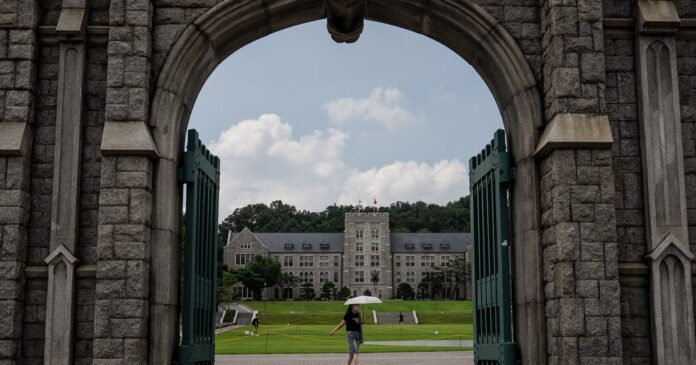South Korea’s top universities are grappling with widespread cheating incidents involving artificial intelligence, just as students finish midterm exams. The scandals, which have hit Seoul National University (SNU), Korea University, and Yonsei University (collectively known as the SKY schools), raise questions about academic integrity in a hypercompetitive education system.
Scale of the Problem
The cheating came to light at Yonsei University, where a professor discovered that dozens of students may have used textbooks, programs, or even ChatGPT during an online midterm. Forty students admitted to cheating. Similar cases emerged at SNU and Korea University within days, confirming that AI-assisted cheating was not isolated. The SKY universities represent the pinnacle of South Korean higher education, and these scandals are unprecedented in scale.
Why This Matters
South Korea places an immense value on education as a pathway to social mobility. The country has one of the highest proportions of college graduates among developed nations, and admission to the SKY schools is fiercely competitive. Students often spend years preparing for the suneung — the grueling, eight-hour college entrance exam that determines their futures.
The stakes are incredibly high, and the pressure to succeed is immense. This explains why some students resort to cheating, especially now that AI tools make it easier than ever.
The Suneung and National Obsession
The suneung is a national event that disrupts daily life. Flights are grounded, construction is halted, and traffic restrictions are enforced to ensure students can concentrate. The public is urged to minimize noise, demonstrating just how seriously South Korea takes education.
This extreme focus on academic achievement may inadvertently create conditions that encourage cheating. The pressure to perform, combined with readily available AI tools, has created a perfect storm.
Implications for the Future
These scandals highlight the urgent need for universities to adapt to the age of AI. Traditional methods of detecting cheating may no longer be sufficient. Institutions must explore new strategies, such as AI-powered plagiarism detection tools, stricter exam proctoring, or even redesigned assessment methods that emphasize critical thinking over rote memorization.
The incidents also raise broader questions about the role of AI in education. While AI can be a valuable learning tool, it also poses significant risks. Universities must strike a balance between embracing innovation and protecting academic integrity.
Ultimately, these cheating scandals are a wake-up call for South Korea’s education system. The country must address the underlying pressures that drive students to cheat and adapt to the changing landscape of learning in the age of artificial intelligence
